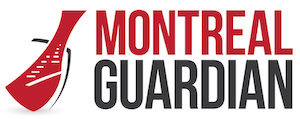Quebec’s gambling market is back in the spotlight this summer as regulators, casino operators, and consumer groups debate the future of digital betting in the province. Montreal, home to Casino de Montréal and a dense cluster of gaming businesses, sits at the centre of the conversation.

The issue drawing the most attention is speed. Players across Canada are showing a clear preference for platforms that allow near-instant withdrawals, with industry trackers noting that customer loyalty increasingly depends on quick access to funds. Montreal-based firms, watching global rivals move ahead, worry that slow regulatory changes will leave them behind.
Several Canadian-facing reviews have started listing providers known for fast payments, underscoring a broader consumer shift. “People aren’t just looking for flashy slots or poker anymore,” said a Montreal gaming consultant. “They want trust, and they want their money back quickly. That’s become the deciding factor.”
Push for Clearer Rules
Quebec’s regulator, Loto-Québec, has kept control over provincial offerings, but its digital strategy is under review. Officials acknowledge that rules drafted years ago no longer reflect current market realities. Still, they have not provided a timeline for reforms, leaving operators uncertain about how to plan new products or partnerships.
Lawyers following the sector argue that Quebec cannot wait much longer. Ontario’s iGaming market has expanded rapidly since opening to private firms, drawing players from across Canada. Quebec residents, meanwhile, are increasingly accessing international websites that are not officially licensed in the province.
“The danger is twofold,” said a Montreal-based legal analyst. “On one hand, the province risks losing revenue. On the other hand, consumers may end up on unregulated sites that offer no real safeguards. Faster payouts might look attractive, but without oversight, there’s risk.”
Local Impact
Montreal’s casino and hospitality sector is already feeling the pressure. Casino de Montréal remains one of North America’s largest land-based venues, but its management acknowledges that younger visitors expect digital access alongside in-person gaming. Some operators are exploring hybrid models, adding mobile platforms or partnerships with established online brands.
Economists tracking the city’s tourism industry see gambling as a key driver. A 2024 report from Tourism Montreal estimated that casino-related visits generated more than $600 million in economic activity. Analysts warn that unless the city adapts, those numbers could stagnate. “We’re competing not just with Toronto, but with Las Vegas and global digital brands,” one report noted.
Industry Adjustments
Operators are also investing in payment technology. Several Montreal fintech startups have begun pitching solutions to streamline withdrawals and deposits, aiming to give local casinos tools to compete. While these systems cannot be fully deployed without regulatory approval, industry insiders see them as a way to bridge the gap between consumer expectations and provincial policy.
Players, meanwhile, are vocal. Online forums frequented by Montreal gamblers highlight frustration with delays of several business days for withdrawals. “It kills the excitement,” wrote one player in a recent discussion thread. “You win, but then you’re waiting almost a week to see the money. That doesn’t work anymore.”
Looking Ahead
Observers expect a sharper debate in Quebec’s National Assembly as pressure builds. Advocates for reform argue that aligning with Ontario’s model could draw investment, improve oversight, and meet player expectations. Opponents remain cautious, citing social risks tied to expanded online gambling.
For Montreal, the stakes are immediate. Businesses linked to the sector need clarity, and players continue to demand smoother, faster transactions. Whether Quebec moves quickly enough to respond remains an open question, but the momentum for change is stronger than at any point in recent years.
